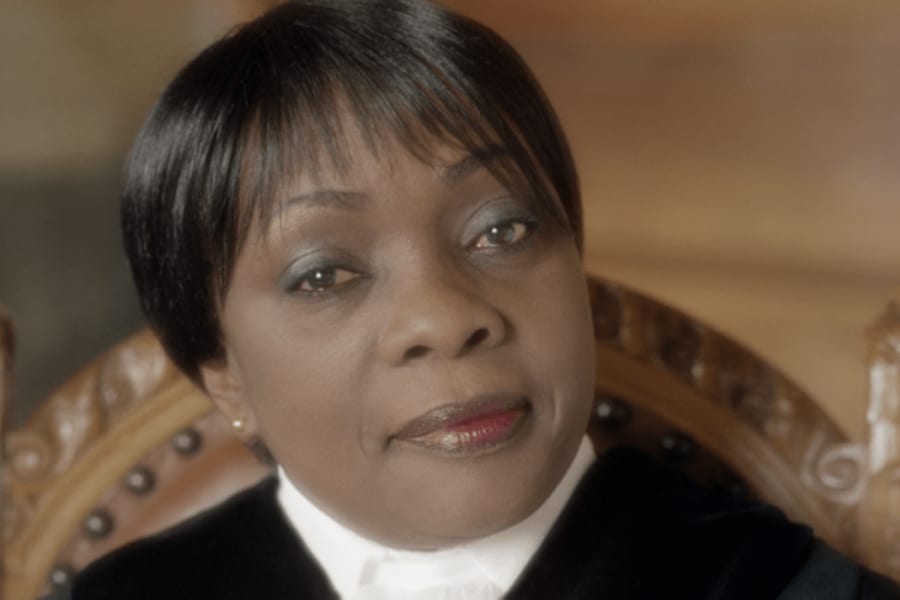Justice Julia Sebutinde: The sole dissenting opinion in the South Africa v. Israel case at the ICJ

When Judge Julia Sebutinde was elected Vice President of the International Court of Justice (ICJ) on February 6th, 2024, it marked a milestone for African representation in international law. As the first African woman to serve on the ICJ and now in its leadership, her ascent reflects the court's efforts to diversify its bench. However, her recent dissenting opinion in the South Africa v. Israel case has thrust her into the spotlight, raising questions about the interplay between beliefs and judicial duty.
Judge Sebutinde’s dissent against provisional measures in the genocide case against Israel stood out for its departure from the court's majority view. Even Israel's ad hoc judge, Aharon Barak, concurred with some humanitarian measures. This has led to the questioning of Judge Sebutinde's reasoning and motivations.
She argued that while the war in Gaza has undoubtedly had devastating humanitarian consequences, the responsibility for the suffering of Palestinians does not lie solely with Israel.
"Hamas bears at least partial responsibility for the welfare of Palestinians in Gaza," Sebutinde noted, pointing out instances where Hamas has impeded the effective delivery of aid and seized supplies for its own use.
The Ugandan jurist's ties to the Pentecostal movement, particularly the Watoto Church in Kampala, have come to light. Christian Zionism, a belief in the divine right of Jews to the land of Israel, is common in such circles. Founding pastor Gary Skinner of Watoto Church has preached on Israel as "The Greatest Sign," citing biblical passages about blessing Israel. Judge Sebutinde herself has credited the church with instilling values that shaped her career.
However, it would be reductive to attribute Judge Sebutinde's legal reasoning solely to religious convictions. Her 40-year career, including service on Uganda's High Court and the Special Court for Sierra Leone, demonstrates a rigorous approach to international law. In her ICJ dissent, she argued that existing measures sufficiently addressed humanitarian concerns in Gaza and cautioned against judicial overreach in ongoing conflicts.
Judge Sebutinde contended that Israel's right to self-defense against Hamas was not incompatible with its obligations under the Genocide Convention. She emphasized the need to consider the broader context of the conflict, including threats to Israel from multiple armed groups. Her opinion stressed that responsibility for Palestinian suffering did not lie solely with Israel, noting Hamas's role in impeding aid delivery.
Critics argue that Judge Sebutinde's stance failed to adequately address urgent humanitarian needs. Supporters, including some in Uganda's political and religious spheres, have hailed her as standing firm on principle. Her election as ICJ Vice President, coming shortly after the controversial opinion, has been interpreted by some as vindication. She was elected by those same 16 jurists who disagreed with her position.
As she assumes her new role, Judge Sebutinde faces the challenge following her personal convictions with the weighty responsibility of international justice. Her tenure will be marked by how she will wisely navigate complex geopolitical disputes and contributes to the upholding of international law as well as protecting the reputation and credibility of the International Criminal Court. No doubt that the still small voice will help her as it has for more than 40 years.
The controversy surrounding Judge Sebutinde underscores the ongoing debate about impartiality in international courts. While personal backgrounds inevitably inform judicial perspectives, the expectation remains that decisions be grounded in legal principle rather than individual beliefs. As the ICJ deals with increasingly contentious global issues, maintaining this delicate balance will be crucial to its continued legitimacy and effectiveness.
Let’s lift up this amazing judge in our prayers in the coming days and months.

Aurthur is a technical journalist, SEO content writer, marketing strategist and freelance web developer. He holds a MBA from the University of Management and Technology in Arlington, VA.














